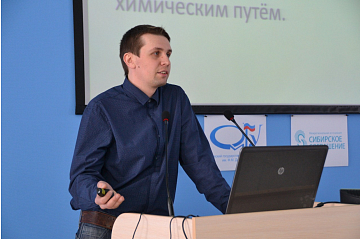Import substitution: Scientists from AltSU develop enzymes for cheese making and feed production

The team of scientists focused its main efforts on the production of milk-clotting enzymes, the availability and accessibility of which determines the development of the domestic cheese industry. In the near future, cheese makers may face a shortage of enzymes due to the sanctions applied to Russia. Now the project team is negotiating with one of the largest food companies of the "EFKO" Group, it acts as a customer of producers of recombinant camel chymosin and recombinant deer chymosin.
By the way, scientists of Altai State University together with colleagues obtained and described the enzyme "deer chymosin" for the first time in the world. There are a number of publications on this topic in the journals Biochemistry and Applied Biochemistry and Microbiology.
Also, scientists are developing a number of enzymes that can be in demand in the agro-industrial complex, said the project manager, a leading researcher of the Russian American Anti-Cancer Center Dmitry Shcherbakov:
- Phosphorus - an important element of animal nutrition - accumulates in plants in the form of phytates, which are simply not absorbed. In order for phosphorus from plant material to begin to be absorbed, certain efforts must be made. Therefore, salts of phosphoric acid are either added to compound feeds, or they are processed in a special way. And just the same, this technology uses phytase - an enzyme that destroys phytates and converts phosphorus into an accessible form. There are no manufacturers of this enzyme on the Russian market, but we are ready to produce it. Our development will help increase the availability of animal feed without artificially adding phosphorus, but by using the material of animal feed to the maximum.
According to Dmitry Shcherbakov, great efforts of scientists are also aimed at obtaining recombinant cellulase and xylonase, which are also used in the production of animal feed and bakery.